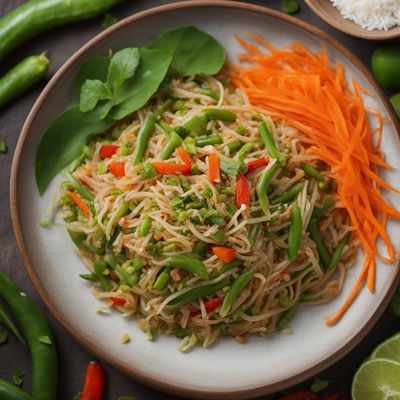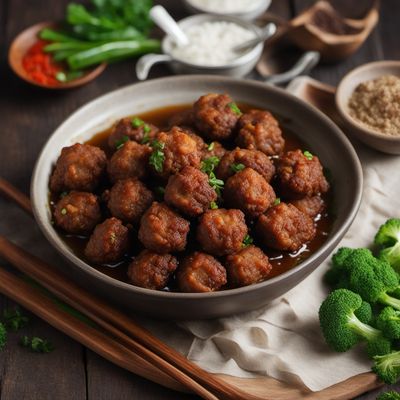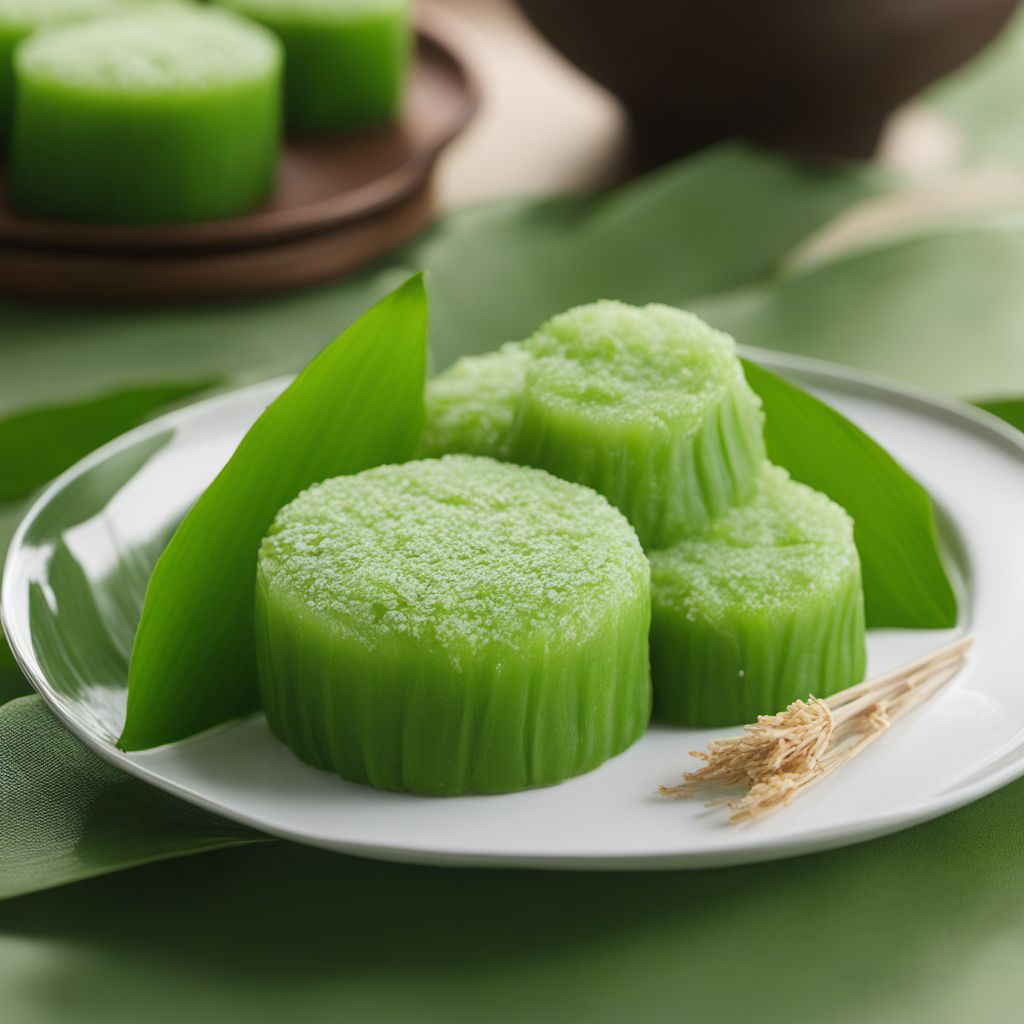
Recipe
Kue Putu - Steamed Pandan Rice Cakes
Pandan Delights: Authentic Indonesian Kue Putu Recipe
4.5 out of 5
Indulge in the flavors of Indonesia with this traditional recipe for Kue Putu. These delightful steamed pandan rice cakes are a popular snack in Indonesian cuisine, known for their fragrant aroma and unique cylindrical shape.
Metadata
Preparation time
20 minutes
Cooking time
10 minutes
Total time
30 minutes
Yields
12 servings
Preparation difficulty
Medium
Suitable for
Vegetarian, Vegan (if palm sugar is substituted with a vegan sweetener), Gluten-free, Dairy-free, Nut-free
Allergens
N/A
Not suitable for
Paleo, Keto, Low-carb, High-protein, Sugar-free
Ingredients
-
1 cup (200g) rice flour 1 cup (200g) rice flour
-
1/4 cup (60ml) pandan juice or pandan extract 1/4 cup (60ml) pandan juice or pandan extract
-
1/4 cup (50g) granulated sugar 1/4 cup (50g) granulated sugar
-
1/2 teaspoon salt 1/2 teaspoon salt
-
1 cup (240ml) water 1 cup (240ml) water
-
1 cup (100g) grated coconut 1 cup (100g) grated coconut
-
1/2 cup (100g) palm sugar, grated 1/2 cup (100g) palm sugar, grated
-
Banana leaves, cut into small squares for wrapping Banana leaves, cut into small squares for wrapping
Nutrition
- Calories (kcal / KJ): 150 kcal / 628 KJ
- Fat (total, saturated): 5g, 4g
- Carbohydrates (total, sugars): 25g, 12g
- Protein: 2g
- Fiber: 1g
- Salt: 0.2g
Preparation
-
1.In a mixing bowl, combine the rice flour, pandan juice, sugar, salt, and water. Mix well until a smooth batter is formed.
-
2.In a steamer, bring water to a boil.
-
3.Take a small piece of banana leaf and fold it into a cone shape, securing it with a toothpick at the bottom.
-
4.Fill the cone with the rice flour batter, leaving some space at the top for the filling.
-
5.Steam the filled cones for about 10 minutes or until the cakes are cooked through.
-
6.Meanwhile, in a separate bowl, mix the grated coconut and palm sugar until well combined.
-
7.Once the cakes are cooked, remove them from the steamer and let them cool slightly.
-
8.Gently remove the toothpick and carefully unwrap the banana leaf to reveal the cylindrical rice cake.
-
9.Fill the hollow center of each cake with the grated coconut and palm sugar mixture.
-
10.Serve the Kue Putu warm and enjoy!
Treat your ingredients with care...
- Pandan juice — If fresh pandan leaves are available, blend them with water and strain the mixture to obtain the juice. Alternatively, pandan extract can be found in many Asian grocery stores.
- Grated coconut — Use fresh or frozen grated coconut for the best texture and flavor. If using desiccated coconut, rehydrate it with a little warm water before mixing with the palm sugar.
Tips & Tricks
- To enhance the aroma of the pandan, you can add a pandan leaf to the steaming water.
- If you don't have banana leaves, you can use parchment paper or aluminum foil as a substitute for wrapping the cakes.
- For a variation, you can add a small piece of palm sugar in the center of each cake before steaming, creating a delightful surprise when bitten into.
- Leftover Kue Putu can be stored in an airtight container in the refrigerator for up to 2 days. Steam them again for a few minutes to reheat before serving.
Serving advice
Serve Kue Putu warm as a delightful snack or dessert. They are best enjoyed fresh out of the steamer when the cakes are still soft and the filling is gooey.
Presentation advice
Arrange the Kue Putu on a platter lined with banana leaves for an authentic touch. Sprinkle some grated coconut on top for added visual appeal.
More recipes...
More Indonesian cuisine dishes » Browse all
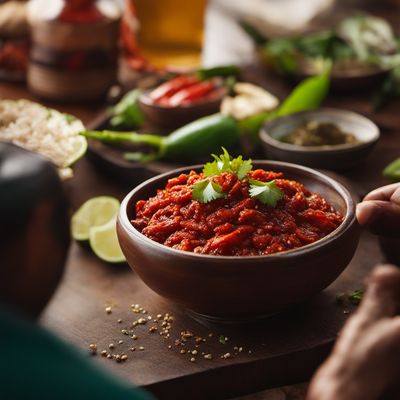
Sambal terasi
Sambal terasi is a spicy Indonesian condiment made with chili peppers and shrimp paste.

Nasi jagung
Corn Rice
Nasi jagung is a traditional Indonesian dish made with corn and rice. It is a popular breakfast dish in many parts of Indonesia.
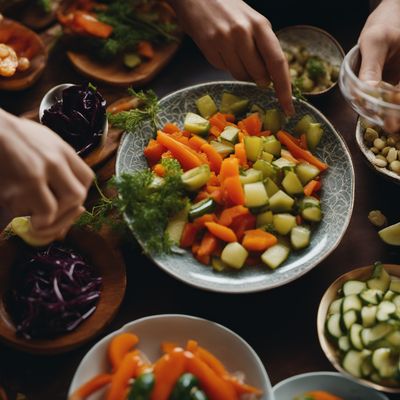
Acar
Pickled Vegetables
Acar is a traditional Indonesian salad made with a mix of vegetables and spices.



